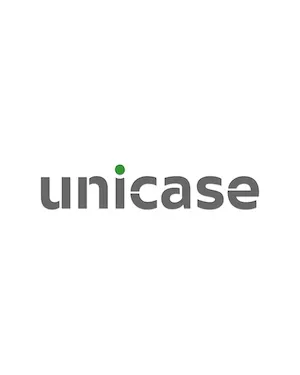Introduction
In global practice, the EPC and FIDIC contracts remain the preferred forms for construction projects. Kazakhstan, a country that is seeking significant infrastructural growth, the implementation of these international contracts is met with a number of challenges attributable to inconsistencies with the national legislation. Hence, to attain this global practice, our law firm, Unicase, displays an analytical article on applying the FIDIC contract forms in Kazakhstan.
Legal Relations and Risk Management
EPC contracts, a widely recognised and preferred form in construction projects, play a pivotal role in ensuring seamless project delivery. The contract serves as one of the most common forms worldwide, mainly for construction projects, encapsulating Engineering, Procurement, and Construction aspects. The EPC contract governs the legal relationship between the Employer and the Contractor while actively managing all the risks and defining the parties' interests. The EPC contract offers many benefits, including fixed contract prices, fixed completion dates, detailed performance specifications, performance guarantees, rights to suspend the contract, flexibility in ordering variations and more. The contract's comprehensive nature is able to cover all the necessary project stages and designates roles for all involved parties.
Thus, the EPC contract encompasses the following main works:
- Engineering- involves surveying, designing, and executing primary construction works.
- Procurement involves selecting and procuring various materials and equipment for the entire project.
- Construction- includes the construction, installation, and commissioning of the work.
The EPC contract, as an extensive and multi-faceted document, contains a number of provisions for the project execution. From Kazakhstan's civil legislation standpoint, the EPC contract is categorised as a mixed contract since it incorporates the elements of several contract types. Nonetheless, the current legislation in Kazakhstan does not explicitly regulate any of the concepts and regulations that an EPC contract obtains.
FIDIC Contracts Applicability Across Borders
In Kazakhstan, EPC contracts are only gradually developing into
construction practices. As per the established practices, the most
typically used form of EPC contracts in Kazakhstan is the FIDIC
form, which is universally applicable under the legislation of most
countries, including those that incorporate English law. Therefore,
FIDIC contracts are able to be utilised globally for the
implementation of significant construction projects.
FIDIC is an abbreviation for “Fédération
Internationale des Ingénieurs-Conseils”, a developed
model contract form established in France in 1913. Throughout the
years, it expanded its influence and credibility beyond its initial
boundaries, France, Switzerland and Belgium. Through its commitment
to promoting fair and standardised contract practices,
FIDIC's model contract form was able to gain recognition for
its reliability and efficacy in more than 50 countries
worldwide.
At the present moment, the FIDIC contains a wide range of projects and procurement methods. Consequently, most international contractors and consultants frequently encounter FIDIC contract terms and conditions as a result of its practicality. The FIDIC contracts embody a proactive approach to collaboration, prioritising mutual protection and fostering amicable resolution of issues, ultimately reducing the possibility of protracted and expensive disputes. The contract is able to emphasise clear delineation of time, quality, and cost obligations and serves as a valuable tool for outlining the essential project parameters, promoting accountability and driving successful project delivery.
-
Red book
This is the most prevalent FIDIC book and tends to be utilised for a wide range of projects, including construction, infrastructure, industrial and mining projects.
-
Yellow Book
This book is mainly utilised for projects that require the supply of equipment, including power plants, industrial plants and refineries.
-
Orange Book
The orange book tends to be used for design, construction and operation projects like airports, seaports, and power plants.
-
Silver Book
The Silver Book tends to be used for projects requiring design and construction, not operation, typically hospitals and schools.
-
Gold Book
The Gold Book is for more large-scale projects with complex constructions where the Contractor is responsible for the design and construction, whilst the Client is responsible for the operation. This Book is suitable for more experienced contractors with experience working on greater projects.
-
Green Book
The Gold Book tends to be for projects that involve design and construction under English law. Although it is less common than the other FIDIC books, it may be suitable for specific project types and a vital element of comprehensive international construction practice.
Keyl Insights on the FIDIC Contract
Each FIDIC Book contains standardised contract terms and conditions that can be adapted to the specific needs of a project. The FIDIC books are considered to be among the most respected and authoritative forms of contracts worldwide and are used in many countries. FIDIC's comprehensive and balanced approach to contract provisions provides a robust framework that is able to promote fair risk allocation, encourage transparency and foster successful project outcomes, making it a preferred choice for construction projects globally. The several types of FIDIC contracts that should be utilised include the Red Book, The Yellow Book and the Silver Book.
The content of this article is intended to provide a general guide to the subject matter. Specialist advice should be sought about your specific circumstances.

